Teachers' empowerment can do wonders for education in Bangladesh

The profession of teaching holds a special importance and responsibility that no one can deny. Teachers have a huge influence on shaping the direction of their students' lives. And they are not just institution-bound. I have favourite teachers from institutions—school, college, and university—and also those from outside these institutions. When I became a teacher myself, I had an extraordinary experience. The relationship that grows between students and their teachers cannot be compared with any other. Unfortunately, not all teachers uphold the spirit of this noble profession; there are many who consider teaching like any other job.
On the other end of this spectrum, we sadly see teachers demonstrating on the streets for days, weeks and sometimes months, demanding just basic rights: living wages, clearance of overdue payments, and proper recognition of their work. During the tenure of the past government, we even saw police being mobilised against teachers when the latter staged protests in Dhaka. It is also disheartening to see many retired school and college teachers at the mercy of bureaucrats for months, sometimes years, for the disbursement of their retirement funds. While in service, most teachers are underpaid, underappreciated, and sometimes disrespected. And after retirement, too, their funds take too long to be disbursed or are withheld, and they are treated poorly. This situation does not encourage capable people to pursue a career in teaching, which in the long run can affect any nation's productive advancement.
The education sector in general remains an area of concern, with teachers and students both facing many challenges. Critical issues such as budget allocation, teachers' training, access to quality education, and making education enjoyable remain unresolved. There are disparities in the quality and standard of education in its various streams. The major stream of education follows the national curriculum, which is available in both Bangla and English versions. There are also British and other foreign education systems, delivered in schools that range from highly expensive to relatively affordable. Then there are cadet colleges, and madrasas, the latter also having Alia and Qawmi streams. Students go to the institutions of these streams depending on their guardians' financial capabilities. How can a nation stand united when discrimination begins at such a young age, affecting children through their respective academic experiences? It should have been a priority of the government to ensure that all children in the country receive equal education, free from discrimination. Unfortunately, we have failed in this regard. And teachers are forced to adjust to this discriminatory system.
Our education allocation in the annual budget is not only low among South Asian countries, but also on a global scale. UNESCO recommends allocating six percent of GDP for education, but in Bangladesh, it is less than two percent. If we want to meet global standards, we need to at least triple our education budget. Moreover, a large portion of the meagre allocation is either misused or wasted. Government schools, colleges and universities are left with numerous vacancies due to budget constraints. Our schools lack basic infrastructure like laboratories and libraries. Many primary schools that should have at least 8-10 teachers often have to run with only two to three. Teachers feel helpless in the face of all such systemic problems.
A recent incident comes to mind. The previous government launched a new curriculum, claiming it was modelled after Finland's education system, yet it failed to address the key differences in these two countries, such as the socio-economic situation, teacher-student ratio, access to free and uniform education, availability of required resources, etc. Teachers in Finland are highly paid and respected, which is not the case in Bangladesh. The new curriculum proved to be unsuccessful, its textbooks riddled with errors. The interim government had an opportunity to fix it, but it was squandered when the committee formed last month to revise the error-ridden textbooks was disbanded amid controversies based on smear campaigns against two committee members, Prof Kamrul Hasan Mamun and Dr Samina Lutfa, who are both teachers at Dhaka University and are committed to improving education. Rather than addressing the misinformation campaign, the government dissolved the committee, crushing hopes for a positive change.
The state must take responsibility for education in such a way that facilitates knowledge transfer from teachers to the students. How can teachers do their job properly if they are provided with textbooks riddled with errors and poor printing quality? How can they make education interesting to students if the resources needed are not provided to them?
Over the years, teachers have had to rely on political connections to secure their jobs. Such practices must not be allowed to continue. Currently, teachers face attacks, both verbal and physical, in schools, colleges, and universities. They are subjected to intimidation in various ways. This culture must come to an end. The recruitment process of teachers must ensure that only qualified, capable, and ethical individuals are chosen for the profession.
Finally, teachers' status must be elevated in the country. In many countries, even in South Asia, teachers are financially better off than those in Bangladesh. If our teachers are forced to take second jobs because teaching doesn't provide enough salary, and work at coaching centres or provide private tuition to survive, they cannot perform their duties as educators effectively.
We must prioritise education and show respect to our teachers. I urge the interim government to remain firm and not give in to anti-education forces. Our education system must be reformed in a way that makes learning enjoyable for everyone, without discrimination, and ensures that teachers are treated with the respect they deserve.
Education must be made enjoyable, accessible, and equitable for students, and for that teachers must have a quality life with dignity.
Anu Muhammad is former professor of economics of Jahangirnagar University.
Views expressed in this article are the author's own.
Follow The Daily Star Opinion on Facebook for the latest opinions, commentaries and analyses by experts and professionals. To contribute your article or letter to The Daily Star Opinion, see our guidelines for submission.

 For all latest news, follow The Daily Star's Google News channel.
For all latest news, follow The Daily Star's Google News channel. 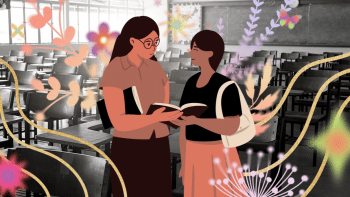
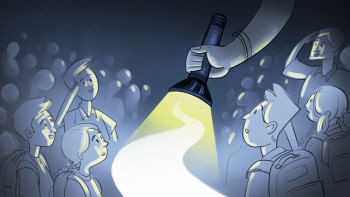

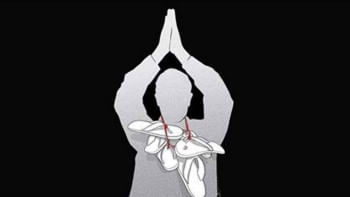



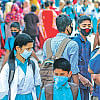

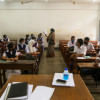
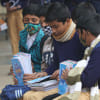



Comments